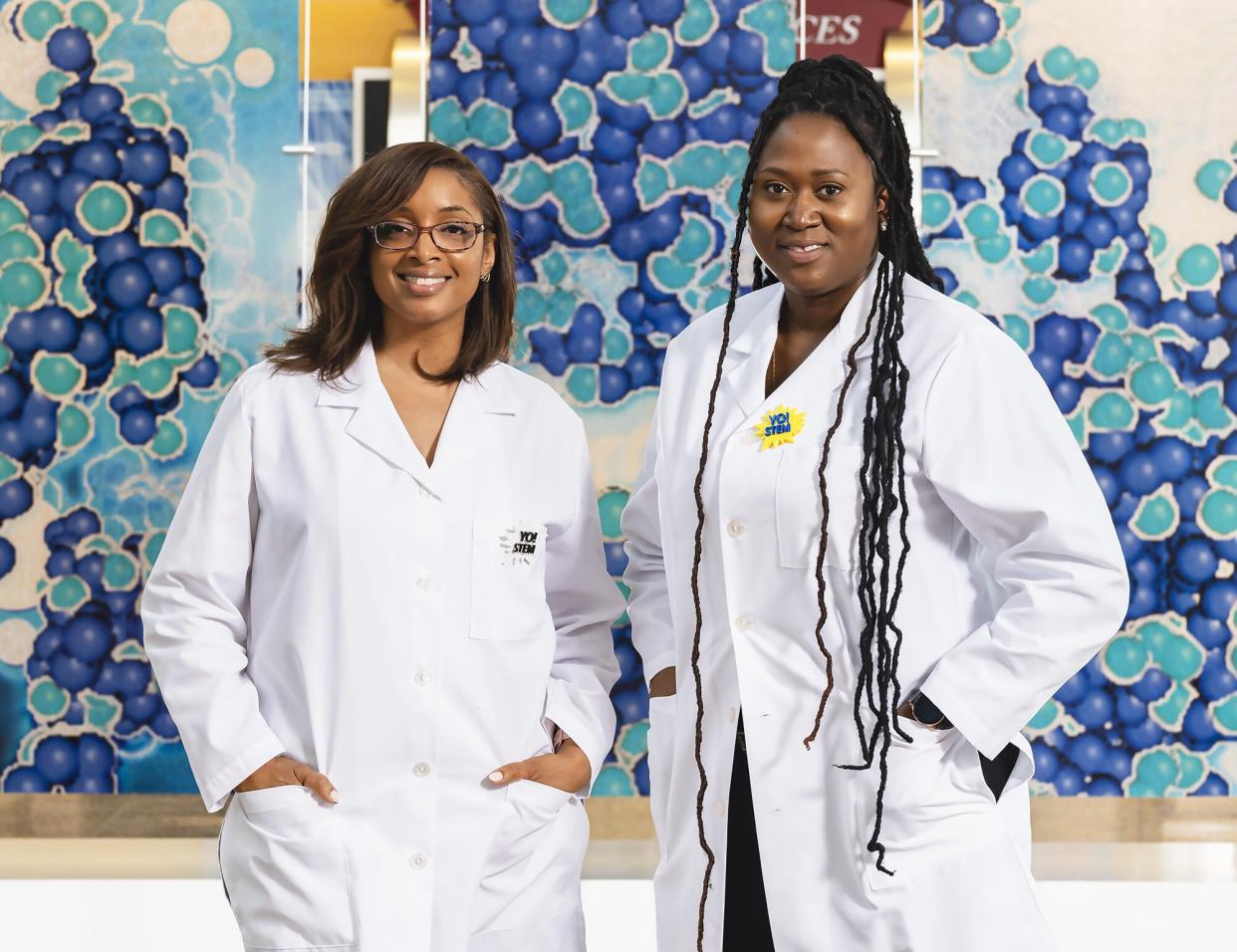Two Chemists Are Preparing Underserved Kids for Jobs in STEM: 'Glass Ceiling Will Be Broken'

- Oops!Something went wrong.Please try again later.
In 2016, nuclear chemist Clarice Phelps was recognized as the first Black woman involved with the discovery of an element: No. 117, tennessine, which now holds a place on the periodic table. She hopes the visibility the moment afforded her reminds Black girls they can hold a place in science, too.
To hammer the point home, Phelps and Candice Halbert, her colleague at Oak Ridge National Laboratory in Tennessee, spend their off-hours bringing science, technology, engineering and math education to underserved Knoxville-area youth through YO-STEM, a nonprofit Halbert founded seven years ago.
"Being a Black woman in science is being seen and unseen at the same time," Phelps, 41, tells PEOPLE. (The National Science Foundation reports that Black women make up just 2 percent of all scientists and engineers.) "People see you because you stand out, but they un-see you because they don't think you should be there — some may not see you as being credible or worthy. But I'm supposed to be exactly where I'm at. And I'm leaving a legacy for whoever is coming next."
Adds Halbert, 42: "Exposing youth to more diverse individuals allows them to pursue these different careers. It's a two-way street: We're preparing these students so they can take our place — to hire them and watch them grow."
They recall a time not long ago that kids, when asked to draw their idea of a scientist, would sketch an older White man. Now, Phelps says, "middle schoolers are drawing more women. It's a step."
Never miss a story — sign up for PEOPLE's free daily newsletter to stay up-to-date on the best of what PEOPLE has to offer, from juicy celebrity news to compelling human interest stories.
Both women credit beloved childhood teachers for opening the doors to what science and math could be for them.
"Initially I wanted to be a doctor because that's typically what we think science jobs are when they're young," says Halbert. "We're teaching kids about electrical engineering, biochemistry. We only want to be what we know and what we see, and by exposing our youth to more diverse individuals and fields, that allows them the opportunity to want to even pursue these different careers."
Adds Phelps, "It's not even that they have to choose this career field, but letting them know it's an option — and a fun one! — is important. There is so much you can do with a STEM career."
RELATED: Meet PEOPLE's Women Changing the World in 2023
Halbert and Phelps — both moms who are currently working on their PhDs — hope to expand YO-STEM to kids in cities around the U.S. in the near future.
"I hope by the time our students get to where Candice and I are today, they won't have to go through what we've been through," says Phelps, "because those glass ceilings will have been broken and the pieces swept away."
For more Women Changing the World in 2023, pick up the latest issue of PEOPLE, on newsstands now.

